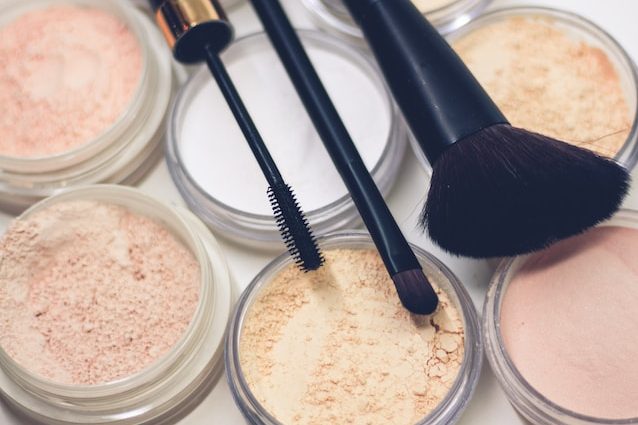Before we dive deep into the PESTEL analysis, let’s get the business overview of Boots. Boots UK Limited, commonly known as Boots, is a leading health and beauty retailer and pharmacy chain in the United Kingdom. The company was founded in 1849 by John Boot and was headquartered in Nottingham, England. It is a subsidiary of Walgreens Boots Alliance, formed in 2014 through the merger of Walgreens and Alliance Boots.
Boots operates over 2,300 stores across the UK, ranging from large flagship stores in major cities to smaller local pharmacies. The company’s product offerings include a wide range of health and beauty products, including skincare, makeup, haircare, fragrances, personal care, and baby products. Additionally, Boots offers pharmacy services, opticians, and hearing care services.
Boots pharmacy services are a significant part of its business, providing prescription dispensing, health advice, and support services. Many Boots pharmacies also offer additional services like flu vaccinations, travel health consultations, and health checks.
The company has developed several exclusive brands, including No7, Soap & Glory, and Botanics, which cater to various consumer needs in the health and beauty segments. Boots also stocks products from various national and international brands, making it a one-stop destination for health and beauty products.
Boots is known for its customer loyalty program, the Boots Advantage Card, which allows customers to earn points on purchases and redeem them for discounts and special offers.
- Overall revenue has decreased by 2.3% to £5,812m,— down from £5,948m in 2020.
- The company made a gross profit of £2,102m for the 2021 financial year. When distribution costs, administrative expenses, and other operating income are considered, this amounts to an operating profit of £8m.
- Pharmacy sales made up 39.3% of all sales in 2021 — up slightly from 38.7% in 2020; pharmacy revenue decreased by 0.7%, down to £2,283m in 2021 from £2,300m in 2020.
Here is the PESTEL analysis of Boots
A PESTEL analysis is a strategic management framework used to examine the external macro-environmental factors that can impact an organization or industry. The acronym PESTEL stands for:
- Political factors: Relate to government policies, regulations, political stability, and other political forces that may impact the business environment.
- Economic factors: Deal with economic conditions and trends affecting an organization’s operations, profitability, and growth.
- Sociocultural factors: Relate to social and cultural aspects that may influence consumer preferences, lifestyles, demographics, and market trends.
- Technological factors: Deal with developing and applying new technologies, innovations, and trends that can impact an industry or organization.
- Environmental factors: Relate to ecological and environmental concerns that may affect an organization’s operations and decision-making.
- Legal factors: Refer to the laws and regulations that govern businesses and industries.
In this article, we will do a PESTEL Analysis of Boots.
PESTEL Analysis Framework: Explained with Examples
Political
- Regulatory Environment: Being a pharmacy and health and beauty retailer, Boots UK operates within a regulated environment. Changes in the pharmaceutical industry, including drug approvals, pricing controls, and patent regulations, can significantly influence its operations.
- Brexit Impact: The UK’s decision to leave the European Union (Brexit) brought about uncertainties in trade agreements, tariffs, and labor movement. As a result, Boots, having a supply chain across Europe, may face challenges in sourcing and distribution.
- National Health Service (NHS) Funding and Policies: As one of the primary providers of pharmaceutical services to the NHS, Boots is significantly impacted by changes in NHS funding, policies, and priorities.
- Taxation Policies: Changes in corporate tax rates, VAT, and other fiscal policies can influence Boots UK’s profitability and pricing strategies.
- Trade Relations: Boots UK sources many of its products internationally. Political relationships between the UK and other countries and the resulting trade policies can influence the cost and availability of these products.
- Public Health Policies: Government initiatives related to public health, such as campaigns against smoking or promoting vaccinations, can influence the range of services and products Boots offers.
- Consumer Protection Laws: Policies related to product safety, quality assurance, and consumer rights can affect how Boots sources, markets, and sells its products.
Economic
- Economic Growth: The overall health of the UK’s economy directly affects consumer spending. A robust economy would mean consumers have more disposable income to spend on health, beauty, and luxury products. At the same time, an economic downturn might reduce consumer spending, focusing more on essential items.
- Inflation and Interest Rates: High inflation can increase costs for Boots regarding purchasing products and operational expenses. Simultaneously, interest rate fluctuations can impact the company’s borrowing costs and influence consumer purchasing power.
- Exchange Rates: Boots UK, being part of a global supply chain, deals with suppliers from various countries. Fluctuating exchange rates can influence the cost of imported goods, affecting product pricing and profit margins.
- Property Market Trends: The cost of renting or purchasing retail space can influence Boots’ expansion or contraction strategy. Economic downturns may lead to reduced rental costs, providing expansion opportunities.
- Healthcare Spending: Government spending and policies related to healthcare and pharmaceuticals can influence the products and services Boots offers, especially as a pharmacy provider.
- Technological Investments: Economic health can dictate the level of investment available for technological advancements, be it in-store technology, e-commerce platforms, or supply chain management.
- Fuel and Energy Costs: Fluctuations in fuel and energy prices can influence operational costs, especially in logistics and store operations.
Sociocultural
- Health and Wellness Trend: An increasing awareness of health and wellness in the UK means more consumers actively seek products and services that cater to a healthier lifestyle. This trend influences demand for vitamins, organic skincare products, and health services.
- Aging Population: The UK’s aging demographic could increase the demand for healthcare services, prescription medicines, and anti-aging cosmetic products. With its pharmacy division, Boots stands to benefit from this demographic shift.
- Diverse Population: With a multicultural population in the UK, there’s a demand for diverse product ranges catering to different ethnicities, especially in the beauty and skincare sectors.
- Digital Connectivity and Social Media Influence: The rise of influencers and beauty bloggers means that brands and products can become popular almost overnight. However, this also means that negative reviews can impact sales just as quickly.
- Consumer Trust and Brand Loyalty: Given past controversies in the beauty and healthcare industries, consumers value transparency and honesty. Boots must ensure consistent and open customer communication to build and maintain trust.
- Gender Norms and Beauty Standards: As societal perceptions of beauty evolve and become more inclusive, and gender norms become less rigid, Boots would need to ensure its marketing and product range reflects these changes.
- Mental Health Awareness: As the dialogue around mental health becomes more open in the UK, there’s an opportunity for Boots to offer products and services that cater to mental well-being.
- Evolving Family Dynamics: Changing family structures, like the rise in single-parent households or multigenerational homes, can influence buying habits and the types of products and services that become popular.
Technological
- E-commerce Growth: The rise of online shopping has changed the retail landscape. Boots UK has to invest in its online platform, ensuring user-friendly interfaces, efficient order processing, and timely deliveries to compete with online-only pharmacies and beauty retailers.
- Digital Payment Systems: With the advent of digital wallets, contactless payments, and other electronic payment methods, Boots needs to ensure it integrates these payment options for smoother customer transactions, both online and in-store.
- Artificial Intelligence (AI) and Machine Learning: AI can be employed for personalized marketing, predicting consumer buying patterns, and inventory management. Machine learning algorithms can enhance the online shopping experience by recommending products tailored to individual user preferences.
- Augmented Reality (AR) in Beauty: AR can be particularly valuable in the beauty sector, allowing customers to ‘try on’ makeup virtually. This technology could be integrated into the Boots mobile app or in-store displays.
- Telehealth Services: With advancements in telemedicine, Boots could expand its pharmacy and health services to offer virtual consultations, especially relevant during times when in-person consultations might be challenging.
- Data Analytics: Harnessing big data can provide insights into consumer behavior, helping Boots to fine-tune its marketing strategies, optimize stock levels, and enhance customer service.
- Supply Chain Automation: Technological improvements in inventory management, warehousing, and logistics can help Boots streamline operations, reduce costs, and ensure product availability.
- Chatbots and Virtual Assistants: Implementing AI-driven chatbots on their online platforms can provide customers with 24/7 support, answering queries and assisting in product selection.
- Internet of Things (IoT): IoT devices can help monitor patients’ health metrics remotely in the health sector. Boots could integrate these technologies into its health services, offering products or services that align with IoT-driven health management.
Environmental
- Sustainable Packaging: As environmental awareness grows, consumers’ demand for eco-friendly packaging increases. Boots UK might need to revisit its product packaging, aiming for materials that are biodegradable, recyclable, or made from recycled content.
- Waste Management: Efficient waste management is becoming crucial, particularly in reducing plastic waste. This entails sustainable product packaging and in-store operations, like phasing out single-use plastic bags or introducing store recycling points.
- Sustainable Sourcing: Consumers increasingly expect transparency about where products come from and their production conditions. Boots UK could prioritize sourcing sustainably manufactured products, ensuring no deforestation, exploitation, or other environmental harm.
- Eco-friendly Products: There’s a growing demand for natural, organic, and eco-friendly beauty and health products. Boots could expand its product range to include more products, ensuring they are authentically green and not just “greenwashed.”
- Green Transportation: To reduce carbon emissions, Boots could consider electric vehicles for deliveries or work with suppliers who prioritize green transportation options.
Legal
- Regulations on Pharmaceuticals: Boots UK, a pharmacy-led health and beauty retailer, must strictly adhere to the legal framework related to pharmaceutical products. This includes ensuring all products are licensed, handling prescriptions accurately, and following all related pharmaceutical guidelines.
- Consumer Protection Laws: Boots must ensure that all its products, from beauty items to health supplements, meet the safety standards set by regulatory bodies. This is vital to avoid legal disputes and to maintain customer trust.
- Health and Safety Regulations: Being a store that welcomes millions of visitors annually, Boots UK needs to ensure its premises are safe for employees and customers. This includes everything from fire safety to the safe storage of medicines.
- Advertising Standards: Misleading advertising or claims, especially regarding health and beauty products, can lead to legal consequences. Boots must ensure all promotional material is transparent, honest, and compliant with advertising standards.
- Import and Export Regulations: If Boots UK sources products from other countries or exports its products, it needs to adhere to the import/export regulations, duties, and tariffs.
- Intellectual Property Laws: It is vital to protect its brand, formulations, or any patented products against counterfeiting or infringement.
- E-commerce Regulations: With the increasing shift to online shopping, Boots UK has to consider legalities related to online sales, customer rights regarding returns, data protection, and digital marketing.
- Lease and Property Laws: Since Boots UK operates numerous physical stores, understanding and adhering to property laws, rental agreements, and related regulations is important.











